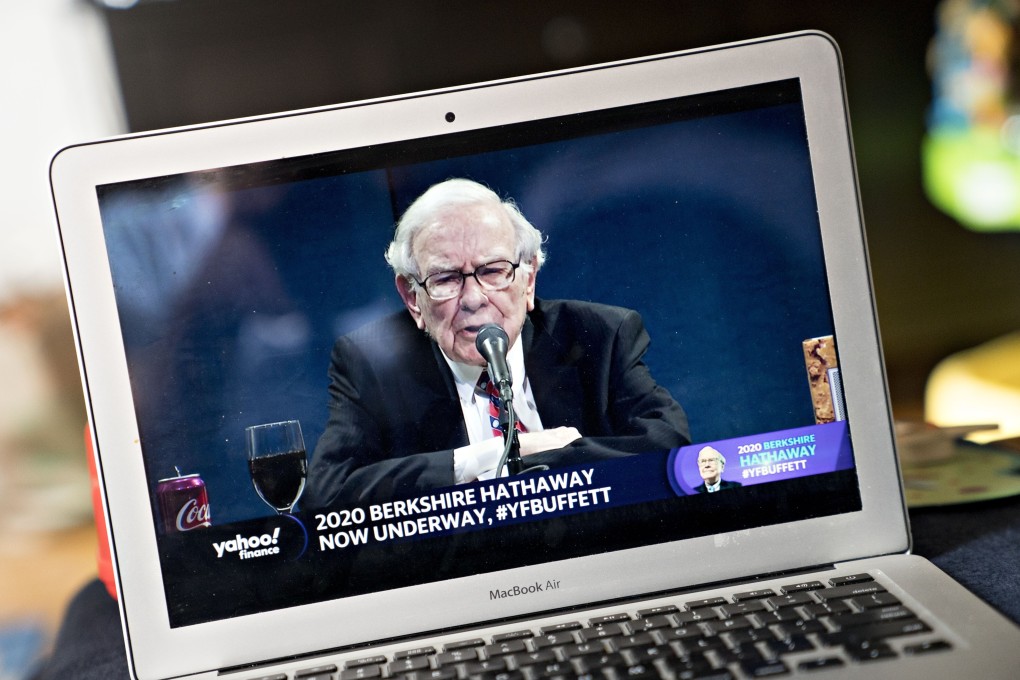Advertisement
Warren Buffett buys back Berkshire Hathaway stock as sage of Omaha struggles to deploy cash into higher-returning assets
- Berkshire Hathaway’s US$9 billion stock buy-backs in the third quarter are the biggest by a US company after Apple
- Berkshire stock climbed 20 per cent in the third quarter, surpassing the 8.5 per cent gain in the S&P 500 Index during the same period
3-MIN READ3-MIN

Warren Buffett has gone from a stock-buy-back sceptic to one of the world’s biggest repurchasers as his own firm becomes his favourite investment in the pandemic.
The famed investor’s Berkshire Hathaway spent the third quarter buying back about US$9 billion of its own stock, more than it had repurchased in any full year in its history. The buying spree takes the total repurchases in the first nine months of 2020 to US$16 billion, and the most recent pace would be the biggest of any US company except Apple, which happens to be Buffett’s largest investment.
Buffett, 90, has been struggling for years to find attractive deals that would deploy his cash pile into higher-returning assets to help supercharge the growth of his conglomerate. In recent years, he has backed off his long-held aversion to share buy-backs. Now, repurchases led his capital-deployment manoeuvres in the quarter, alongside a roughly US$6 billion investment in Japanese trading houses, a bet on Snowflake and a deal for natural gas assets.
Advertisement
“You start to talk about a pretty significant amount of cash that’s been put to work,” Jim Shanahan, an analyst at Edward Jones, said in a phone interview. Big multibillion investments “are difficult to come by and in the absence of that, they’re finding ways to put cash to work, I think in a meaningful amount.”

The buy-backs allowed Buffett to chip away at Berkshire’s cash pile in the third quarter, with that war chest dropping slightly to US$145.7 billion, the company said on Saturday. The funds, which still give him plenty of capital to deploy into acquisitions, stock purchases or buy-backs, have recently been accumulating faster than Buffett can put them to work in higher-returning assets.
Advertisement
Advertisement
Select Voice
Select Speed
1.00x